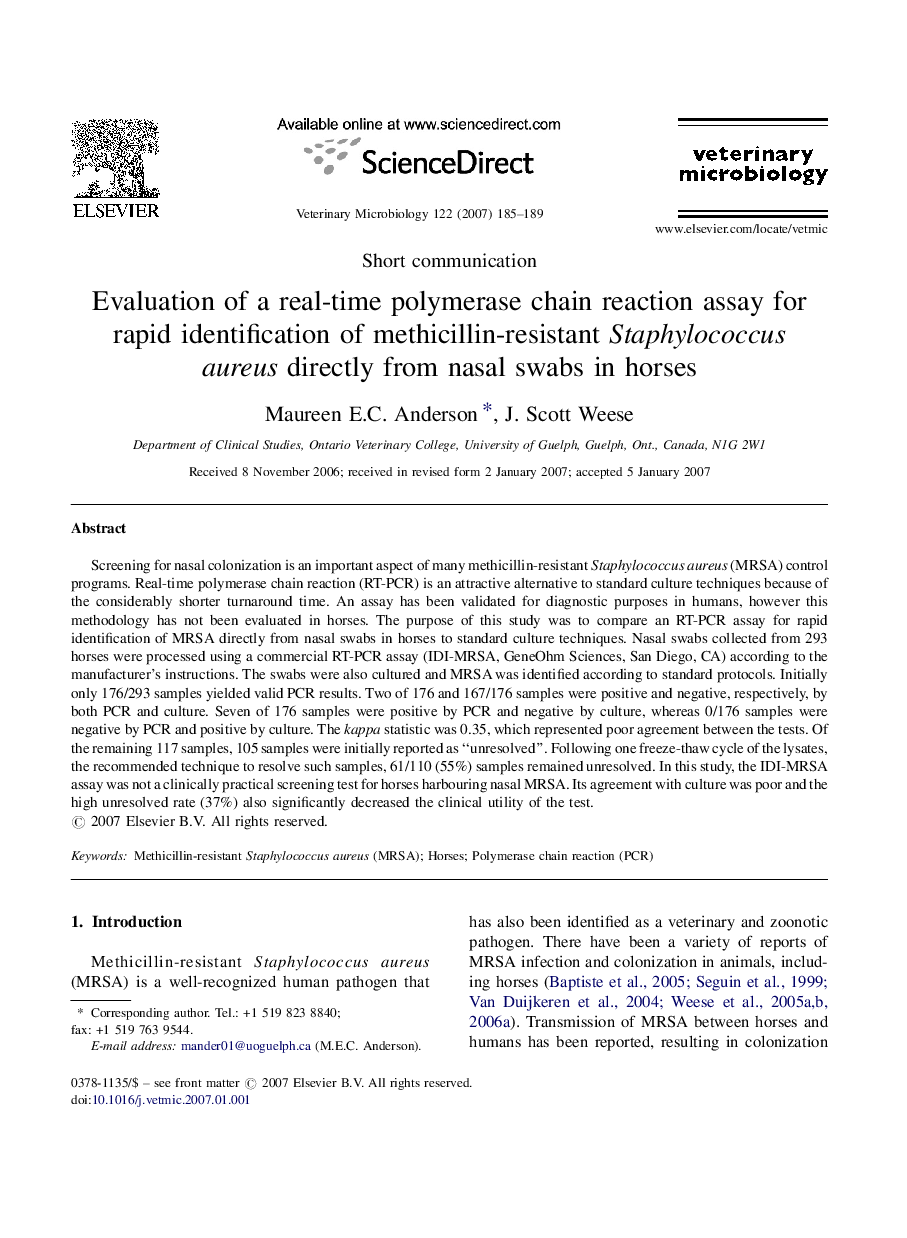| Article ID | Journal | Published Year | Pages | File Type |
|---|---|---|---|---|
| 2469101 | Veterinary Microbiology | 2007 | 5 Pages |
Screening for nasal colonization is an important aspect of many methicillin-resistant Staphylococcus aureus (MRSA) control programs. Real-time polymerase chain reaction (RT-PCR) is an attractive alternative to standard culture techniques because of the considerably shorter turnaround time. An assay has been validated for diagnostic purposes in humans, however this methodology has not been evaluated in horses. The purpose of this study was to compare an RT-PCR assay for rapid identification of MRSA directly from nasal swabs in horses to standard culture techniques. Nasal swabs collected from 293 horses were processed using a commercial RT-PCR assay (IDI-MRSA, GeneOhm Sciences, San Diego, CA) according to the manufacturer's instructions. The swabs were also cultured and MRSA was identified according to standard protocols. Initially only 176/293 samples yielded valid PCR results. Two of 176 and 167/176 samples were positive and negative, respectively, by both PCR and culture. Seven of 176 samples were positive by PCR and negative by culture, whereas 0/176 samples were negative by PCR and positive by culture. The kappa statistic was 0.35, which represented poor agreement between the tests. Of the remaining 117 samples, 105 samples were initially reported as “unresolved”. Following one freeze-thaw cycle of the lysates, the recommended technique to resolve such samples, 61/110 (55%) samples remained unresolved. In this study, the IDI-MRSA assay was not a clinically practical screening test for horses harbouring nasal MRSA. Its agreement with culture was poor and the high unresolved rate (37%) also significantly decreased the clinical utility of the test.
